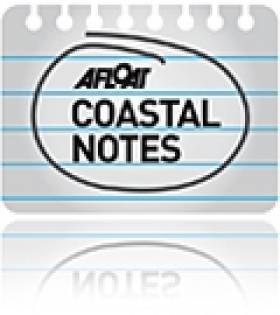Displaying items by tag: fishing grounds
#DALKEY ISLAND PROSPECT – The Green Party has called on the Minister for the Environment ,Phil Hogan, to hold a public enquiry in to the application to grant a license to Providence Resources' PLC to carry out a site survey and drill an exploration well in the Dalkey Island prospect on the Kish Bank basin.
Speaking yesterday Green Party spokesperson on Planning, Tom Kivlehan, said: "There are huge concerns among the people of Dublin about the proposed application and they feel that the process does not afford them the opportunity to have their questions and worries answered.
A public enquiry could address their fears. We have seen the consequences of poor public consultation in respect of the Corrib Gas Field and we should learn the lessons from it".
Dublin Bay is an environmentally sensitive area and a tremendous amenity for the population of Dublin, Famous for its Dublin bay prawns, it has a special area of conservation, bird sanctuaries, seal and dolphin populations, fishing grounds, beaches and sailing facilities.
He added: "It also is home to Ireland's largest port and is a busy shipping hub. Any new proposed development that can cause a potential risk to the life of Dublin Bay must be open public scrutiny and be fully transparent".
Under the Foreshore Act 1933 (Section 3, paragraph 9) the Minister has the power to call a public inquiry and "we now ask him on behalf of the people of Dublin to do so as quickly as possible".
As previously reported on Afloat.ie, a public meeting is to be held by Dalkey Community Council next week to discuss the proposed exploratory operation by Providence Resources.
- Green Party
- Coastal Notes
- Dalkey Island Prospect
- Kish Bank Basin
- Providence Resources
- Minister Phil Hogan
- Department of Environment
- Dublin Bay
- Dublin Bay Oil exploration
- Dalkey Community Council
- Corrib Gas field
- Bird Santuaries
- Seal and dolphins
- fishing grounds
- beaches
- Dublin Bay prawns
- Dublin Port
- Dublin port shipping hub





























































